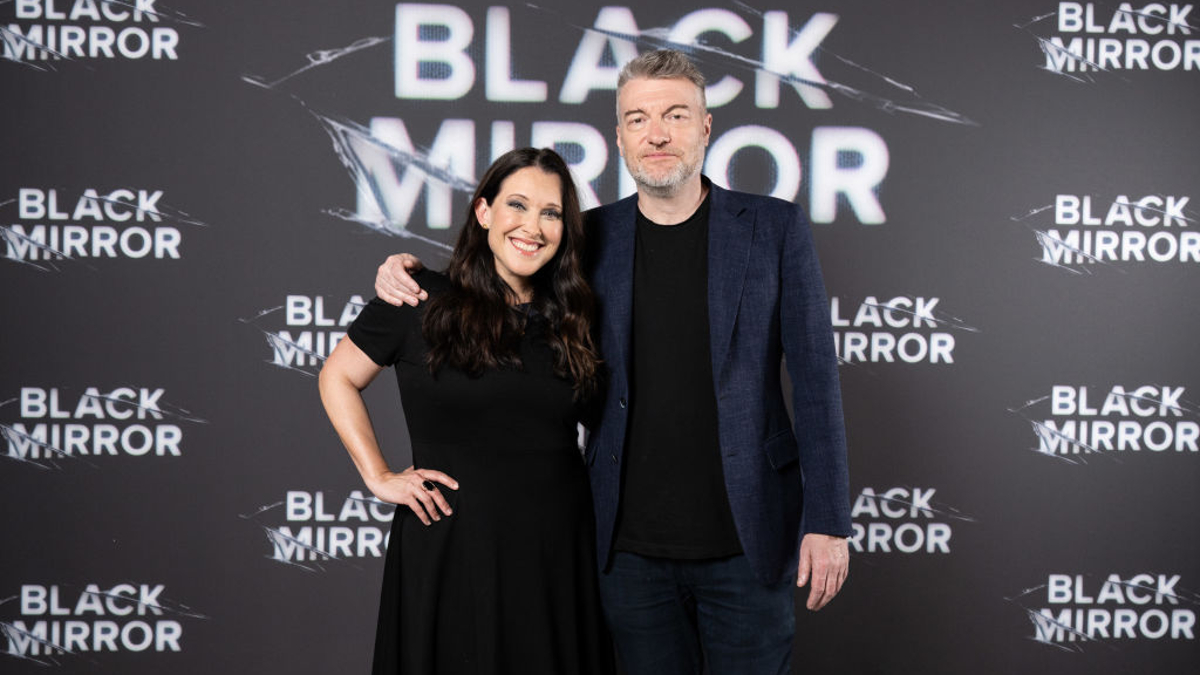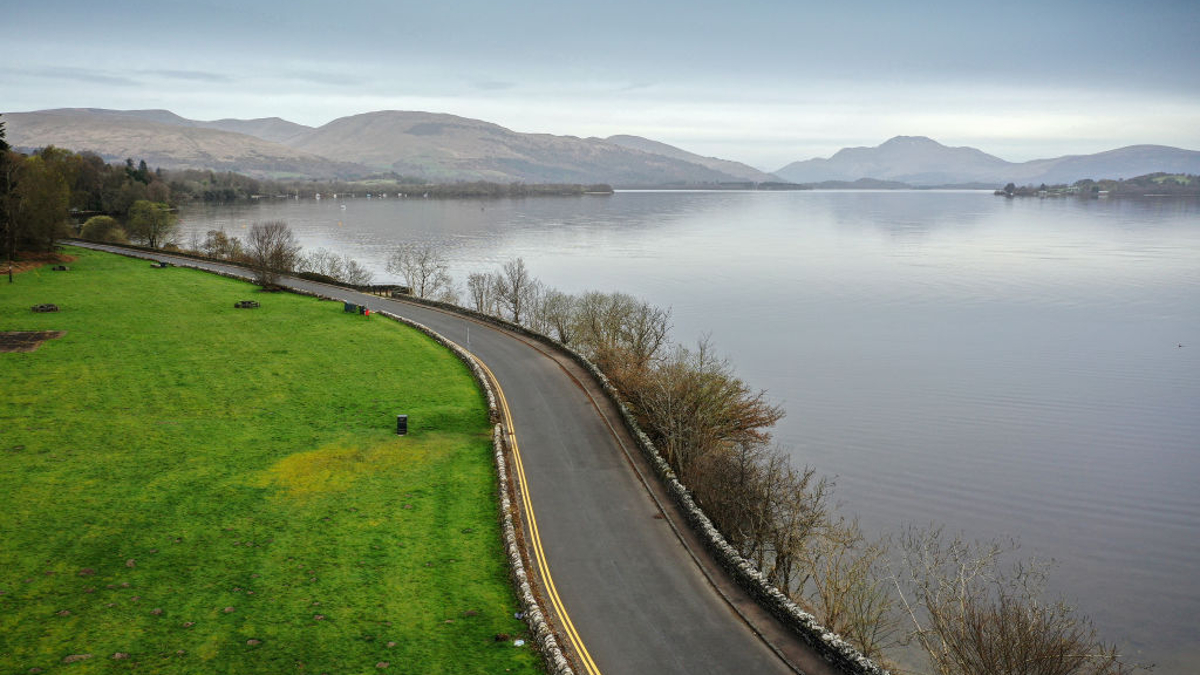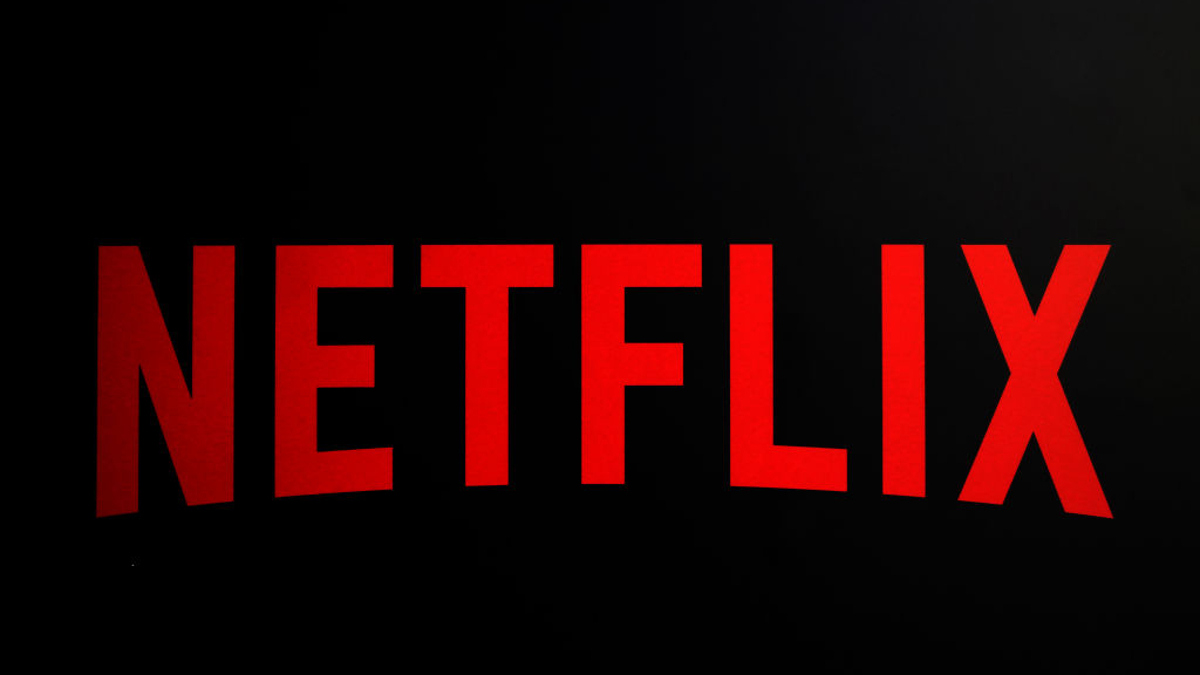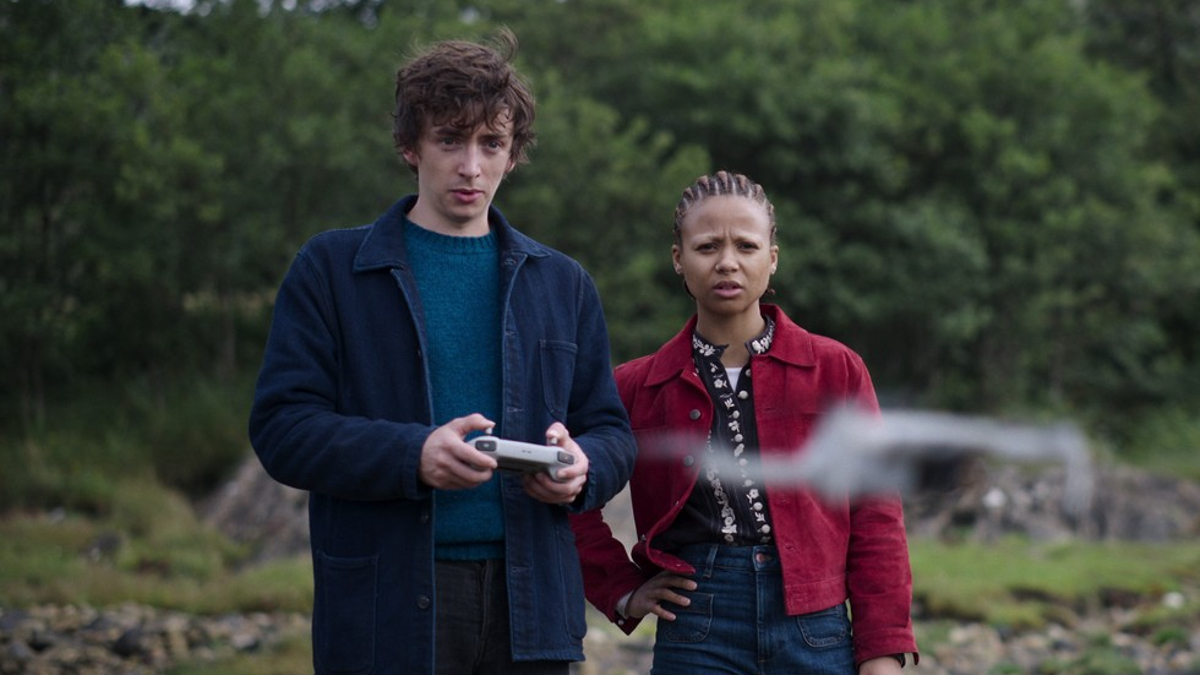Warning: This article contains spoilers for Black Mirror season six episode “Loch Henry”
With the triumphant return of Black Mirror after a way too long hiatus, fans have already gotten to work dissecting all the in-universe Easter Eggs scattered throughout the newest season. As the Black Mirror universe often contains a blend of fictional characters and companies alongside ones that exist in our world, viewers might sometimes spot a reference to something that genuinely does have a real-life presence.
The second episode, titled “Loch Henry,” of the new season is an intriguing exploration of the dangers and damage caused by our increasingly global obsession with the true crime genre, driven home by one of the bleakest and most unsettling ending the show has ever given us. It follows Davis (Samuel Blenkin) and Pia (Myha’la Herrold), a young couple who are taking a trip back to the former’s idyllic rural Scottish hometown to make a nature documentary, only to change focus when Pia learns about a gruesome local serial killer case. The pair, alongside Davis’ childhood friend Stuart (Daniel Portman), delve into the murders, only to unearth something even more disturbing than the original deaths.
During the course of the episode, there’s plenty of discussion of true crime documentaries, and one Netflix series gets mentioned as being particularly gruesome: The Waltonville Claw. However, is this a real show, or something made up by Charlie Brooker to make a point?
Is The Waltonville Claw a real true crime show?

No, The Waltonville Claw isn’t a real true crime show, although the description that we get in the episode from Stuart makes it sound pretty titillating. During the scene where the fictional series is discussed, Stuart mentions how the killer ate a victim’s eye in front of her, while also going on about how it was filled with sweeping shots of gorgeous Waltonville, showing off the stunning scenery and thus bringing tourism back to the town. He believes a true crime documentary made by Pia, Davis, and himself could restore his own town’s faltering tourism industry, and save the pub he runs in the process.
Is Waltonville a real place?

As gorgeous as it sounds, Waltonville is very much a fictional spot. So, pretty sad if you wanted to do some Black Mirror filming location hunting, but there is one silver lining — at least there wasn’t ever a deranged killer eating women’s eyes in front of them. The village and loch in which this episode was filmed, however, does exist. “Loch Henry” is set by Loch Long, which is part of the Loch Lomond & The Trossachs National Park. Loch Lomond is the largest loch in Scotland by surface area, although Loch Ness has the most water (it contains more freshwater than all of the lakes and rivers in England and Wales).
The village the episode was filmed in is called Arrochar and is right by the gorgeous Argyll Forest, perfect for delightful nature walks. If you are planning a trip to Scotland and want to swing by, it’s around an hour from Glasgow, so easily accessible (if you don’t mind tiny, winding mountain roads, of course).
Why is it on Netflix instead of Streamberry?

One aspect of all of this that left a number of viewers confused was the fact that The Waltonville Claw was described as a “Netflix documentary.” Normally, this wouldn’t be too strange, especially considering Black Mirror has been produced by Netflix for multiple seasons now, but the in-universe streaming service is specifically mentioned as being called Streamberry. It’s a major plot point in the first episode of the season, too. So, there were a few fans online wondering why the true crime show about the man who eats eyes wasn’t on the in-universe streaming service.
Brooker is known for his fastidious writing and attention to detail, so it’s unlikely to have been a mistake. Some theorized it was to make a direct dig at Netflix for their almost endless true crime content library, especially in the shadow of their biggest recent hit in the genre, Monster: the Jeffrey Dahmer Story. However, unless the writers reveal the answer, we’ll never really know why they made this direct reference to the real-world streaming giant, instead of the one they had set up as the bad guy in their universe.

